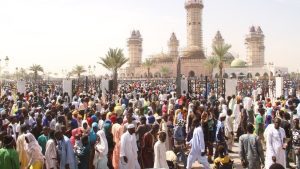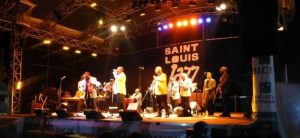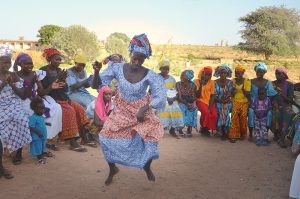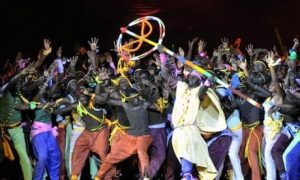Senegal, a vibrant West African country with a rich cultural heritage, celebrates a variety of festivals that reflect its diverse ethnic groups, traditions, and religions. These festivals are occasions for the Senegalese people to come together, showcase their unique cultural practices, and celebrate their identity. In this paper, we will delve into some of the prominent festivals in Senegal, highlighting their significance and cultural aspects.
One of the most well-known festivals in Senegal is the “Magal of Touba.” This annual religious pilgrimage celebrates the life and teachings of Sheikh Amadou Bamba, the founder of the Mouride Brotherhood, a prominent Sufi order in Senegal. The festival takes place in the holy city of Touba and attracts millions of pilgrims from all over Senegal and beyond. It is a time of spiritual reflection, prayer, and communal activities. Pilgrims often undertake long journeys to Touba, expressing their devotion to the Sheikh and seeking his blessings. The Magal of Touba is a significant event that brings together people of various backgrounds in a shared expression of faith and unity (Smith, 2003).

Another notable festival is the “Saint Louis Jazz Festival,” which takes place in the historical city of Saint Louis. This annual event celebrates the rich musical heritage of Senegal and the African continent as a whole. Jazz musicians from Senegal and around the world gather to perform and celebrate this musical genre that has strong roots in African rhythms and melodies. The festival includes live concerts, workshops, and seminars that promote cultural exchange and appreciation of jazz music. It not only showcases the artistic talents of Senegalese musicians but also fosters international connections through music (Cohen, 2010).

The “Tabaski” or Eid al-Adha is a significant religious festival celebrated by the Muslim community in Senegal. This festival commemorates the willingness of Ibrahim (Abraham) to sacrifice his son as an act of obedience to God. Families gather for prayers, feasting, and the exchange of gifts. One of the central customs of Tabaski is the ritual slaughter of livestock, symbolizing the willingness to make sacrifices in the name of faith. The meat is then shared among family members, neighbors, and the less fortunate, promoting social cohesion and solidarity (Fall, 2016).

The “International Festival of Black Arts” (Festival Mondial des Arts Nègres) is a major cultural event that showcases various forms of artistic expression from Senegal, the African diaspora, and beyond. This festival, established by Senegal’s first president Léopold Sédar Senghor, aims to celebrate and promote black culture, heritage, and creativity. It features a diverse range of artistic disciplines, including visual arts, literature, music, dance, and theater. The festival encourages cross-cultural dialogue, fostering a deeper understanding and appreciation of the diverse cultural contributions of people of African descent (Diagne, 2008).

In conclusion, Senegal’s festivals are a testament to the country’s rich cultural diversity and its people’s commitment to preserving their traditions and identities. The Magal of Touba, Saint Louis Jazz Festival, Tabaski, and the International Festival of Black Arts are just a few examples of the various celebrations that highlight religious, musical, and artistic aspects of Senegalese culture. These festivals not only bring joy and celebration but also play a crucial role in strengthening community bonds and promoting cultural exchange.
